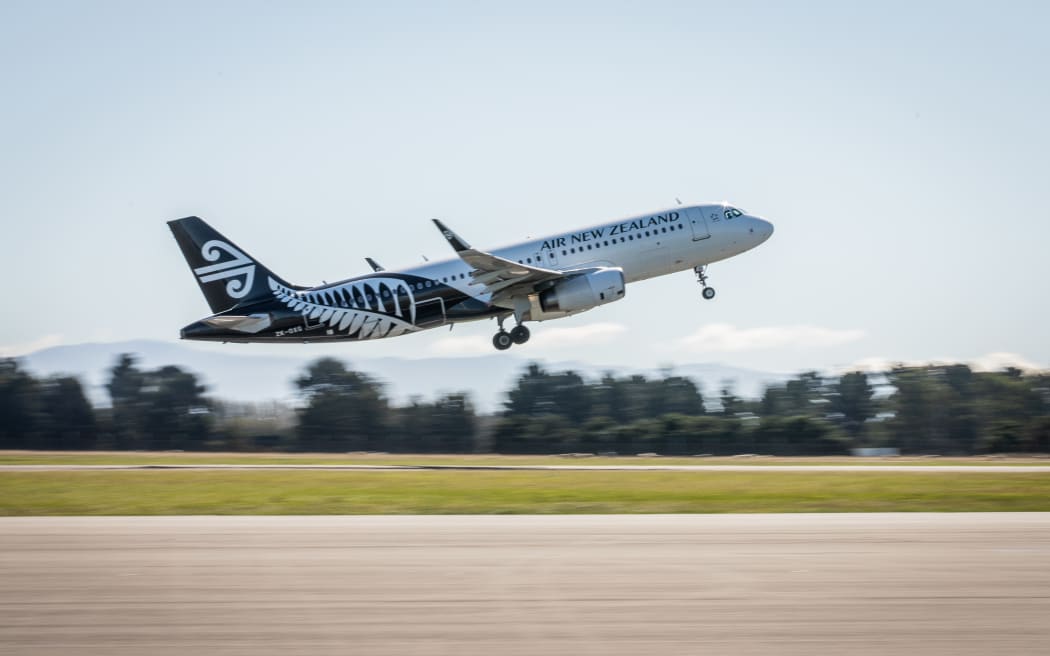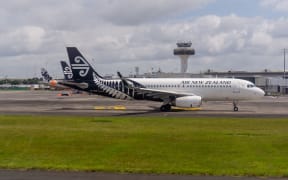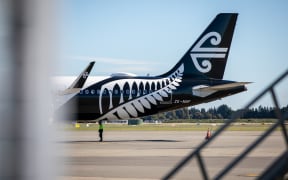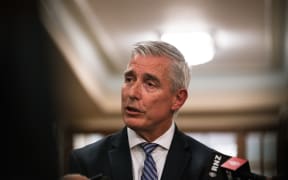
Air New Zealand says it is keeping airfares as low as possible while still covering its costs. Photo: RNZ / Nate McKinnon
Air New Zealand claims there have been some "misleading statistics" about the level of airfare increases and says it is keeping fares as low as possible but still needs to cover its costs.
Data from Stats NZ shows domestic airfares rose by 7.4 percent in February, adding pressure to the already high cost of living for New Zealanders.
NZ Airports Association said Air New Zealand had hiked its average domestic network airfares by $51 to $200 per one-way airfare for the year ending September 2023 which was a 34 percent rise on the previous year.
Air New Zealand's general manager domestic Iain Walker said it was unfortunate there had been "some misleading statistics" being publicised.
"We've been open that our fares have been up 2 percent year on year in February and that's actually below inflation and cost."
The airline was being forced to review its airfares but they were not jumping as high as stated by the Airports Association, he said.
"We know that the data that they quoted in their release actually only uses partial data and so our data uses online bookings, grabaseat and so includes all our sale fares as well."
Air New Zealand had nothing to hide in terms of their airfares and it was in the company's best interests to keep fares as low as possible, but it was still necessary to cover the costs of the operation, Walker said.
"I would note that when they (NZ Airports Association) talk about an airfare increasing between January to February, I think the stat they used is it was up 7 percent, I would note that actually the January airfare was down 12 percent using the same data that was available through Stats NZ - so the February figure is actually lower than the December figure."
Asked if Air New Zealand would support the NZ Airports Association's call for independent monitoring of its performance and airfares through the Ministry of Transport, Walker said the airline would "support the monitoring of the whole eco-system".
"To give you a sense in the last year our bill for landing charges has gone up $40 million on domestic, so we are absolutely willing to be transparent about the cost and the fare of travel," he said.
"We want to be transparent about our airfares but also I think it's important for people to acknowledge and be aware of what it actually costs to fly right now because costs are continuing to go up in all aspects of travel."
That was a challenge and that was why Air New Zealand wanted to keep its airfares balanced, he said.
Walker described Air New Zealand and regional airports working together as a "win win" saying he visited regional airports around the country on a regular basis.
The big challenge currently was Auckland Airport and Air New Zealand did not believe covering the cost of their services was viable, he said.
"You're talking an extra $90 return per ticket, we don't believe that's sustainable in an environment that is already facing high cost pressures."
On the number of flight cancellations, Walker acknowledged that regional flying was difficult for Air New Zealand.
"The main reason for cancellations is primarily weather but in the last few months the average cancellation rate has been 2 percent."
Asked about the Airport Association statement that 8.5 percent of the flights between Rotorua and Auckland were being cancelled, Walker said that was primarily due to weather.
"We're working on things that we can control and additional recovery options, so later in the day we can offer additional services."
Disruptions were not ideal for passengers or the airline, but when it happened Air New Zealand worked hard to accommodate passengers and get them on their way, he said.
A lack of engineers was another factor in cancellations, he said.
"We're working hard to grow our engineering team, so we're hiring at the moment."
There was a shortage of engineers as a result of Covid-19 but the airline was now looking to hire some engineers in the regions so the flights could take off first thing in the morning, rather than having to get an engineer in from a main city, he said.




